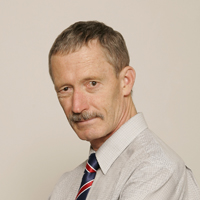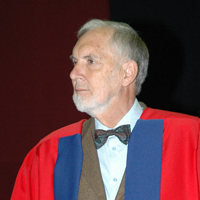Latest News Archive
Please select Category, Year, and then Month to display items
10 March 2022
|
Story Anthony Mthembu
|
Photo Unsplash
 The No Student Hungry team gearing up to start distributing food parcels to the selected students.
The No Student Hungry team gearing up to start distributing food parcels to the selected students.
The UFS is one of the many institutions of higher learning where food insecurity is an active issue. However, the
No Student Hungry Programme is one of the initiatives launched at the university to assist in fighting food insecurity at the institution.
The purpose of the programme
Since its inception in 2011, the initiative has assisted many students in acquiring a healthy meal. Additionally, the Food Environment Office also hands out food packages, so that students can continue to achieve academically. “We are trying to develop a healthy environment for students and make it easier for them to have a nice and healthy meal,” stated Annelize Visagie, who heads the Food Environment Office at the UFS. The Food Environment programme is spread out on all three campuses, each with its own facilitators. Furthermore, the programme mainly caters for students who are not funded by the National Student Financial Aid Scheme (NSFAS) but who are excelling academically. The abovementioned students apply for assistance online, and a list is then drawn up of students who receive assistance for the year.
Alternative solutions to keep the initiative running
On the Bloemfontein Campus, the No Student Hungry Programme will be catering for 200 students in the 2022 academic year, assisting them with a daily nutritious meal. Additional food parcels are also handed out to provide further assistance. “We give food parcels to the students on the list every Tuesday and Thursday at the Thakaneng Bridge,” Visagie highlighted. However, she argues that catering for the student population through this programme can be a challenge, as the demand for assistance is growing rapidly and the ability to assist is limited. The programme relies on partnerships and sponsors to assist the student body. In fact, the coordinators of the programme currently have a memorandum of understanding with Tiger Brands according to which they deliver around 100 food parcels for distribution.
In addition, the coordinators have put in place alternative measures to ensure that they can provide more food to students. “The
Kovsie Act Office, in partnership with the
Department of Sustainable Food Systems and Development, has started a food garden where healthy and nutritious produce are grown, in order to add value to the distribution,” she indicated. Although the programme can only assist to a point, students who are in desperate need of assistance are never turned away. In fact, the
Social Support Unit at Thakaneng Bridge usually assists students with food vouchers for a maximum of four days.
A commitment to teaching healthy eating habits
The programme is not only committed to curbing food insecurity, but also to ensuring that students have a healthy and balanced diet. As such, a booklet is being issued by the
Department of Nutrition and Dietetics in collaboration with the Department of Sustainable Food Systems and Development, which contains ways in which students can make a healthy meal using some of the ingredients offered in the food parcels.
“We want to teach students how to eat healthy in the cheapest way, because they don’t have a lot of money to buy expensive food products,” Visagie argued.
Two academics will be sorely missed
2013-04-02
|
 
|
Prof Andrew Marston and Prof Bannie Britz
Photo: Supplied
02 April 2013 |
The staff and students of the University of the Free State (UFS) are deeply saddened by the recent passing in Bloemfontein of two of the university’s most esteemed and renowned academics, Prof Bannie Britz and Prof Andrew Marston.
Prof Britz was the Head of the Department of Architecture from 1992 to 2000. He was renowned in his field, winning numerous prizes for Architecture, including the Gold Medal for Architecture from the South African Academy of Arts and Sciences.
“As professional architect and urban designer, Prof Britz was a much awarded architect who received numerous award of merit from the South African Institute of Architects for buildings erected in South Africa over the years,” said Martie Bitzer, Head of the Department of Architecture.
Apart from his acclaim elsewhere, Prof Britz also played a major role in the day-to-day activities of university’s staff and students. He was responsible for the design of the many walkways on campus and the refurbishment of the Main Building on the Bloemfontein Campus. For the many contributions in his field, Prof Britz was awarded an Honorary Doctorate by the UFS in 2007.
Prof Andrew Marston, a specialist in natural product chemistry and methods associated with the isolation and analysis of medically important chemicals from plants, was appointed from Geneva, Switzerland in 2009 under the UFS Strategic Cluster for Advanced Biomolecular Research.
He obtained a B-rating from the National Research Foundation (NRF) in 2011, and was consequently appointed as a senior professor in die UFS Senior Professor Programme. “He has made valuable contributions to the UFS in terms of teaching and postgraduate supervision, as well as research. In his short stay at the UFS, he already co-authored more than ten papers in international chemistry literature,” said Prof André Roodt, Head of the Department of Chemistry.
His research group was part of a multilateral agreement in the European Union (EU) with a number of African and three European universities. He obtained new research funding from the Seventh Framework Programme of the EU for the Building Sustainable Research Capacity on Plants for Better Public Health in Africa project, from the Norwegian Research Council for bioprospecting and the isolation and structure determination of compounds from plants and algae, and from the South African Rooibos Tea Council.
The memorial service for Prof Britz took place on Friday 5 April 2013 in the Berg-en-Dal Dutch Reformed Church in Bloemfontein. The service for Prof Marston took place in the Trinity Church, Charles Street, Bloemfontein.